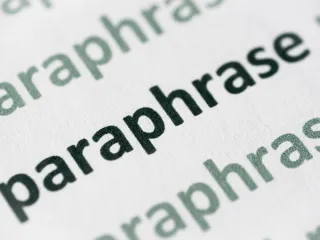We live in an era where technology continually redefines possibilities, and Artificial Intelligence (AI) has emerged as an unstoppable force driving this transformation. Politics, a cornerstone of democratic societies, is not immune to this revolution.
Political campaigns, vital to engaging citizens and shaping political landscapes, are undergoing significant change thanks to AI.
This cutting-edge technology, with its capacity for learning, problem-solving, and predictive analysis, can radically change how campaigns are conducted. It can create more informed strategies, enable effective communication, and increase outreach, leading to better engagement with the electorate.
Understanding AI in Political Campaigns
Artificial Intelligence, at its core, is a branch of computer science that aims to build machines capable of mimicking human intelligence. This capability is achieved through various components like machine learning (ML), natural language processing (NLP), and deep learning. These technologies enable AI to learn from experience, understand and interact in human language, and make predictions or decisions without explicit human intervention.
In the realm of political campaigns, AI brings several potential benefits. It can handle and analyze enormous amounts of data rapidly and accurately, identify patterns and trends that may go unnoticed, and even predict voter behavior based on past trends. Gathering real-time insights can offer campaigns a significant strategic advantage, allowing them to make more informed decisions.
AI technology helps collect information about voters’ preferences, concerns, and attitudes toward political issues. When analyzed and interpreted correctly, this data can provide critical insights into public sentiment and electoral behavior. As a result, political campaigns can design and implement strategies better aligned with voter needs and expectations, thereby increasing the chances of electoral success.
Additionally, AI can help optimize campaign operations and communication. It can automate tasks such as sending personalized messages, creating content, and managing social media platforms. It can also generate insights into the effectiveness of different campaign channels and messages, enabling campaigns to adjust their tactics accordingly.
Using AI to enhance their outreach and engagement, political campaigns can reach more voters and persuade them to support their cause.
Data-Driven Campaign Strategies
The integration of AI in political campaigns has enabled an unprecedented use of data-driven strategies. With AI, campaigns can now gather and analyze vast amounts of data ranging from voter demographics, political inclinations, and social media activity on different campaign activities.
This granular understanding of voters’ preferences and concerns is critical to shaping campaign narratives. AI tools can analyze these data sets to identify key voter segments, understand their preferences, and predict how they might react to different campaign messages. This analysis allows campaigns to micro-target specific demographics, tailor their messages to resonate with different audience segments and optimize their outreach efforts.
In the past decade, AI-driven data analytics have featured prominently in successful political campaigns. For instance, during the 2012 US Presidential Election, Barack Obama’s campaign team used data analytics extensively to gauge voter sentiment and tailor their campaign strategies.
The team collected data from multiple sources, including social media, to understand voter concerns and preferences, and used this information to shape their campaign messages and strategies.
Similarly, in the 2019 UK General Election, the Conservative Party used data-driven strategies to optimize their campaigns. By analyzing voter data and using machine learning algorithms, they could tailor their messages to specific voter groups, resulting in targeted and effective campaign strategies. These instances demonstrate the transformative potential of AI in shaping the future of political campaigns.
However, using AI in political campaigns also raises ethical and social challenges that need to be addressed.
For example, how can we ensure that the data collected and used by campaigns is accurate, unbiased, and respectful of voters’ privacy? How can we prevent the misuse or manipulation of AI tools by malicious actors or foreign adversaries? How can we foster transparency and accountability by political parties and candidates using AI?
These are some of the questions that need to be answered as we embrace the opportunities and risks of AI in political campaigns.
AI-Powered Communication and Messaging
Artificial Intelligence is pivotal in enhancing communication and messaging during political campaigns. AI’s proficiency in processing and interpreting natural language and ability to analyze large volumes of data in real-time make it an invaluable asset in assessing public sentiment and crafting impactful messages.
One significant application of AI in this context is sentiment analysis. By leveraging AI, campaigns can monitor social media platforms and news outlets to gauge public opinion about various issues, candidates, and policies. These insights can guide the development of campaign messages that resonate with the voters’ sentiments.
Furthermore, AI-powered chatbots and virtual assistants transform how campaigns interact with voters. These tools can engage with voters directly, addressing their questions, clarifying policy positions, and even soliciting donations. They are available around the clock, providing immediate responses and creating a more interactive and engaging voter experience.
For example, during the 2020 U.S. Presidential Election, several campaigns deployed AI-powered tools for voter outreach. Joe Biden’s campaign introduced an AI chatbot named ‘SAM’ to assist voters with information about voting procedures, polling locations, and the campaign’s policy positions. Similarly, campaigns worldwide leverage AI to improve their communication strategies and voter engagement.
AI can help campaigns optimize their messaging channels and formats. By analyzing data on voter preferences, behavior, and demographics, AI can suggest the most effective ways to reach and persuade different segments of the electorate. For instance, AI can recommend whether to use text messages, emails, phone calls, or social media posts, as well as the optimal timing, frequency, and tone of communication.
Ethical Considerations and Challenges
While using AI in political campaigns brings numerous benefits, it raises several ethical considerations and challenges. Concerns primarily center around data privacy, security, and the potential misuse of AI-generated content.
Given that AI-driven campaign strategies rely heavily on analyzing voter data, there are valid concerns about how this data is collected, stored, and used. Without rigorous data privacy and security measures, misuse or data breaches are risky.
AI can also be exploited to generate misleading content, including deepfakes and automated disinformation campaigns. These tactics can distort the truth, manipulate voters, and undermine the democratic process.
To ensure the responsible use of AI in political campaigns, there needs to be transparency about how AI tools are used, and data is handled. Regulations should be established to protect data privacy and prevent misuse. Furthermore, campaigns should be held accountable for using AI and its implications.
Finally, raising public awareness about AI’s role in politics is essential. As voters, we should know how our data is used and how AI can influence the information we consume. By fostering a culture of transparency, accountability, and public understanding, we can harness the benefits of AI in political campaigns while mitigating its potential pitfalls.
Future Outlook: AI and the Political Landscape
Looking ahead, the integration of AI in political campaigns is set to become even more pronounced, potentially reshaping the political landscape as we know it. Emerging AI technologies such as deep learning and predictive modeling promise to further refine the data analysis capabilities of campaigns, enabling an even deeper understanding of voter behavior and sentiment.
Deep learning can aid in identifying subtle patterns and correlations within complex datasets that might go unnoticed. Such insights could facilitate the design of more nuanced and effective campaign strategies. Predictive modeling, meanwhile, can project potential election outcomes based on various factors, enabling campaigns to make more informed strategic decisions.
Another crucial area where AI can have a significant future impact is the fight against misinformation and fake news. With the proper training, AI can detect fake news articles, misleading social media posts, and even deep fakes, helping safeguard political discourse’s integrity.
Moreover, AI has the potential to make politics more inclusive and responsive. For example, AI-powered platforms can facilitate greater citizen engagement, collect public opinion on various issues, and analyze this data to provide lawmakers with valuable insights. This could lead to policies that better reflect the needs and wants of the populace.
All these developments paint an optimistic picture of how AI could transform the political landscape, making it more efficient, transparent, and representative.
Quetext and AI Use & Detection
Artificial Intelligence is more than just a buzzword in today’s political campaigns. As we’ve seen, AI’s capabilities are revolutionizing how campaigns are conducted, from data-driven strategies and AI-powered communication to tackling ethical considerations and shaping future politics.
The transformative power of AI is undeniable. By enabling a more precise understanding of voter behavior, enhancing communication, and offering the potential to combat misinformation, AI stands to reshape the future of democratic processes significantly.
However, as with any powerful tool, the use of AI in political campaigns comes with its challenges and ethical considerations. It is, therefore, crucial to encourage further research, collaboration, and responsible development and use of AI technologies in the political realm.
The intersection of AI and politics is still a burgeoning field, and it presents a fascinating area of exploration for technologists, political scientists, policymakers, and citizens alike. As we navigate this exciting new terrain, our collective task is to ensure that these technologies are harnessed to benefit democratic societies, paving the way for a more transparent, inclusive, and efficient political future.
Quetext is committed to helping ensure the originality of each written piece, and we are excited to share that we’re working our magic to soon include the power to detect AI-generated content!
Stay tuned to see what other spells we’re working up and check out our AI Detector Page in the meantime to learn more!









